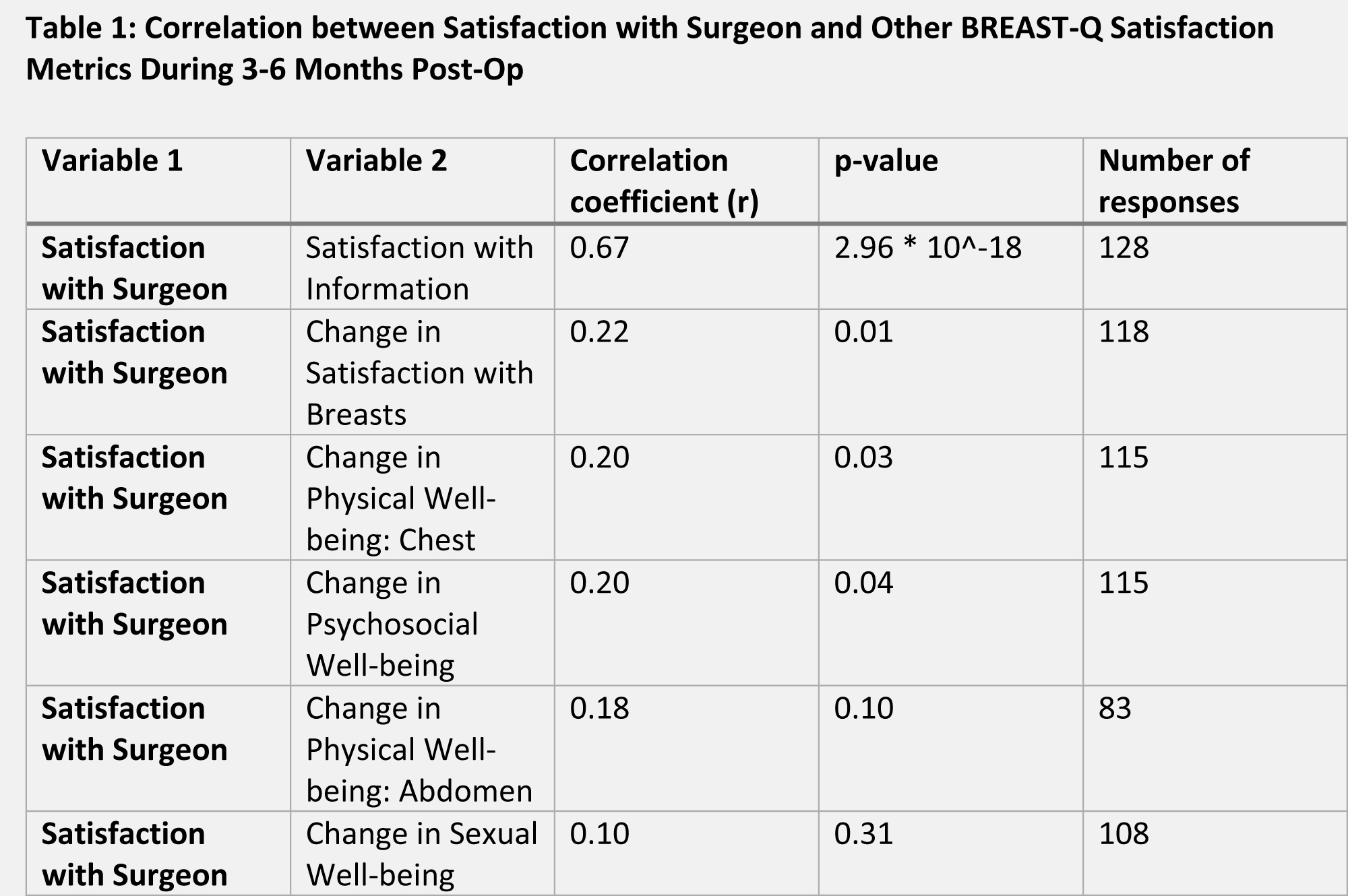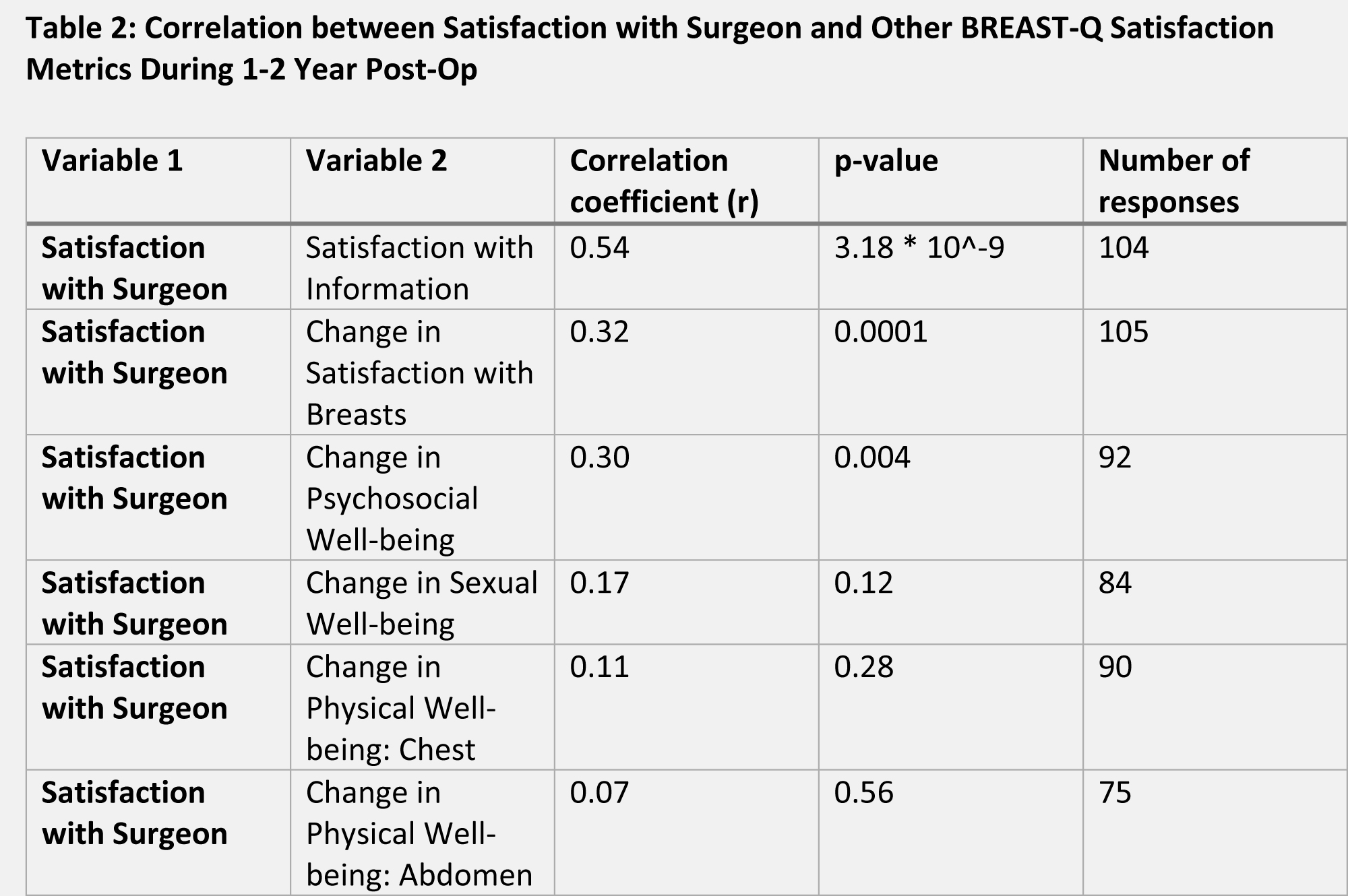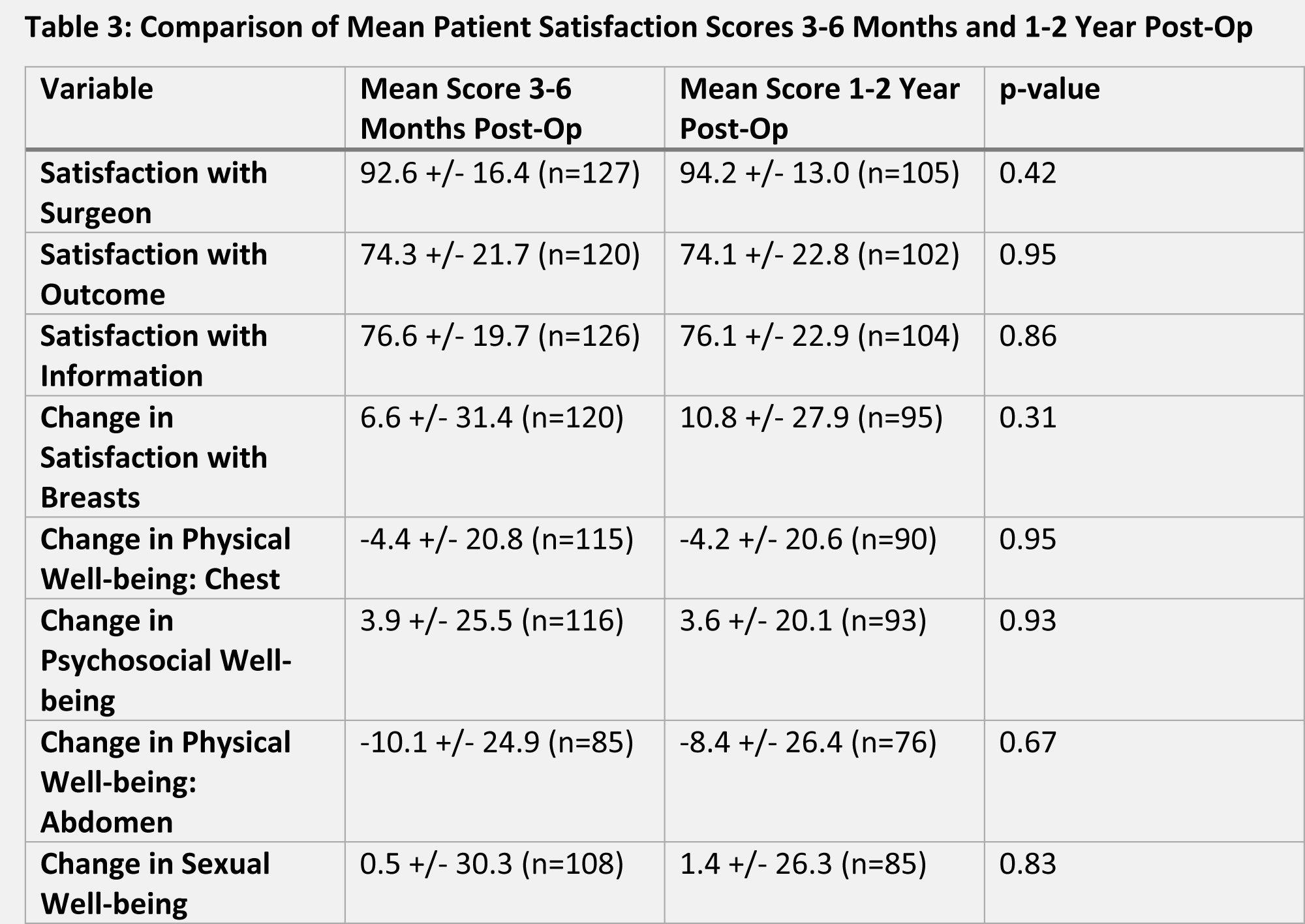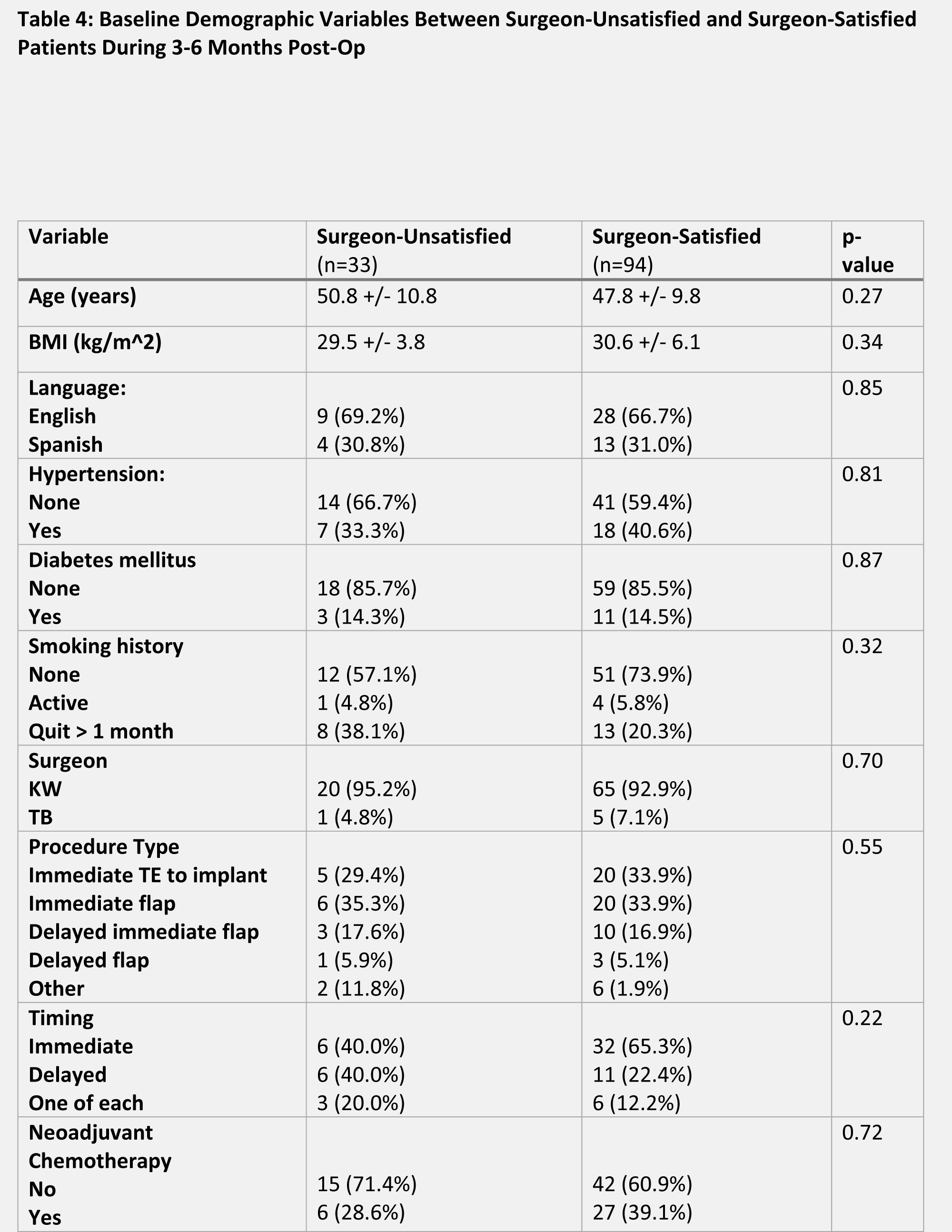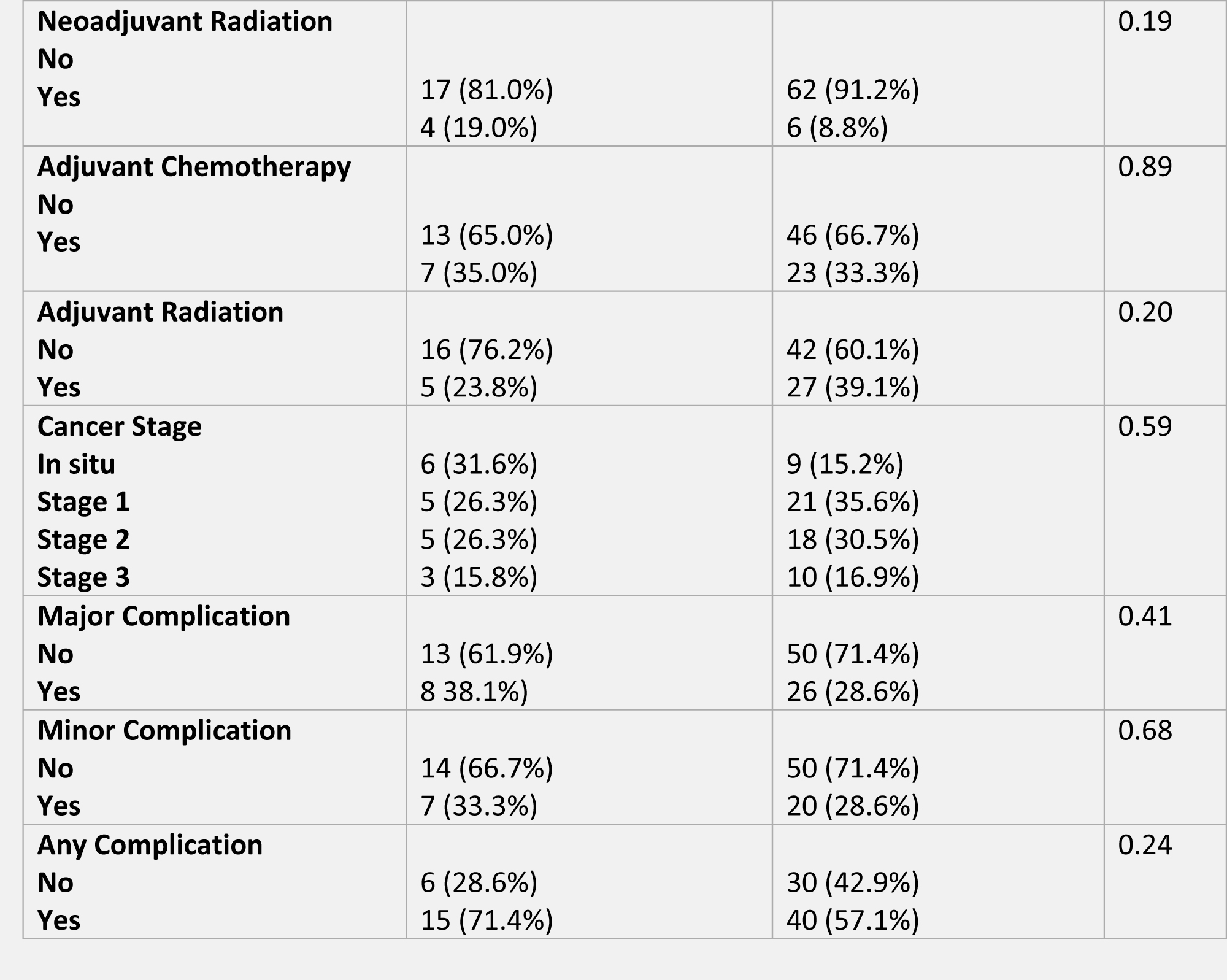Satisfaction with Surgeon Most Strongly Associated with Information Satisfaction in Black/Hispanic Patients
Amanda M. Zong, BS1; Katie E. Weichman, MD2
1Albert Einstein College of Medicine, Bronx, NY; 2Montefiore Medical Center, Bronx, NY
Background: Racial disparities in American healthcare contribute to worse outcomes among minority patients. Previous breast reconstruction studies found that minority patients are more likely to report postoperative dissatisfaction compared to white patients, yet there is limited research on underlying factors. We seek to investigate which post-op reported factors (satisfaction with information received from surgeon, breast satisfaction, physical/psychosocial/sexual well-being) are most strongly correlated with Black/Hispanic patientsí reported satisfaction with their surgeon.
Methods: A retrospective review was performed of Black/Hispanic patients who underwent post-mastectomy breast reconstruction at a single academic center from 2015-2022 and completed pre-op, 3-6 month, and 1-2 year post-op BREAST-Q surveys. Post-op scores were normalized by subtracting the patientís corresponding pre-op scores. Pearson correlation tests were performed between different satisfaction categories, with p-value < 0.05 considered to be statistically significant. T-tests were performed on baseline demographic variables between patients stratified into 2 groups by satisfaction scores, using the median as the threshold.
Results: 127 Black/Hispanic patients were included for analysis. At 3-6 months post-op, satisfaction with surgeon was strongly correlated with information satisfaction (r=0.67, p=2.96*10^-18), and was weakly correlated with breast satisfaction (r=0.28, p=0.01) and physical/psychosocial/sexual well-being (r<0.2). The mean surgeon satisfaction score was 92.6+/-16.4 and information satisfaction was 76.6+/-19.7. When comparing patients with lowest and highest surgeon satisfaction scores (median=100.0, surgeon-unsatisfied n=33, surgeon-satisfied n=94), there were no significant differences in age, BMI, language, procedure type, major/minor complications, or other baseline variables. At 1-2 year post-op, satisfaction with surgeon was moderately correlated with information satisfaction (r=0.54, p=3.18*10^-9), and weakly correlated with other satisfaction measures (r<0.3). The mean surgeon satisfaction score was 94.2+/-13.0 and information satisfaction was 76.1+/-22.9. Between 3-6 month and 1-2 year post-op, there were no significant differences in baseline patient variables or mean satisfaction scores in any BREAST-Q categories. Compared to pre-op scores, patients reported increased post-op breast satisfaction, psychosocial, and sexual well-being, and decreased physical well-being on average.
Conclusion: Among the BREAST-Q measures, only information satisfaction is strongly associated with Black/Hispanic patientsí reported satisfaction with their surgeon at 3-6 months post-op, while controlling for patient demographic variables and complication rates. There are no significant differences in satisfaction scores from 3-6 month to 1-2 year post-op, suggesting consistent patient attitudes towards their surgeon and outcome over time. The findings suggest that surgeons can improve minority patient satisfaction in short and long-term by enhancing information communication, supporting more inclusive care.
Back to 2022 Abstracts

